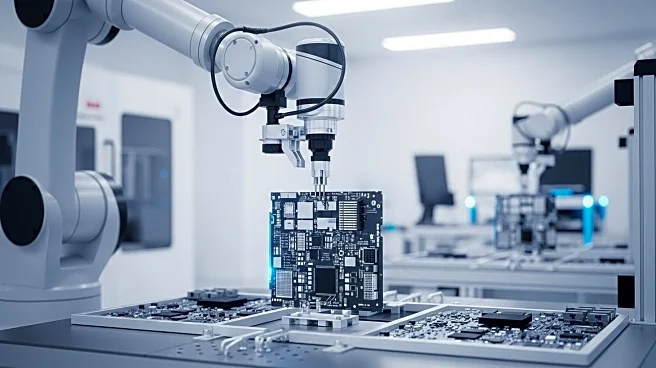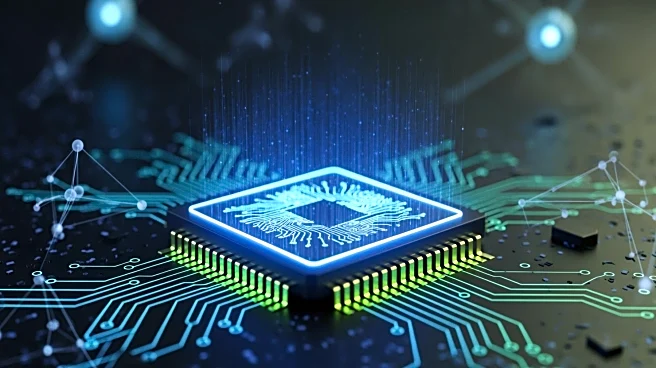What is the story about?
What's Happening?
The electronics manufacturing industry is undergoing a transformation driven by six key technologies: automation and robotics, artificial intelligence and machine learning, smart logistics, Internet of Things (IoT), advanced printed circuit board design, and additive manufacturing (3D printing). These technologies are streamlining production processes, enhancing precision, and improving operational efficiency. Automation and robotics are reducing human error and increasing productivity, while AI and machine learning are optimizing quality control. IoT provides real-time data for smarter decision-making, and advanced PCB design improves product quality. Additive manufacturing allows for the creation of complex components, further advancing production capabilities.
Why It's Important?
The integration of these technologies is crucial for the electronics manufacturing industry as it addresses persistent challenges such as labor shortages and the need for increased precision and scalability. By adopting automation and intelligent systems, manufacturers can achieve greater consistency and reduce production delays. The use of AI and IoT enhances quality control and energy management, leading to cost savings and improved environmental responsibility. These advancements are essential for maintaining competitiveness in a rapidly evolving industry and meeting the growing demand for high-quality electronic products.
What's Next?
As these technologies continue to mature, their combined influence will redefine efficiency in electronics production. Manufacturers are expected to further integrate AI and IoT to enhance real-time monitoring and predictive analytics, driving innovation in product design and manufacturing processes. The focus will be on developing smarter logistics systems to optimize supply chains and reduce waste. Additionally, the industry may see increased collaboration between technology providers and manufacturers to leverage these advancements for sustainable and cost-effective production.
Beyond the Headlines
The transformation of electronics manufacturing through these technologies has broader implications for the industry, including ethical considerations related to AI-driven decision-making and data privacy. As manufacturers rely more on intelligent systems, ensuring transparency and accountability in AI applications becomes crucial. The shift towards automation also raises questions about the future of the workforce and the need for reskilling to adapt to new roles in technology-driven environments.















